Dundee social worker Andrew Hunter strangled his pregnant wife Lynda with the lead of her pet collie Shep then concealed her body in a wood.
Hunter thought he could outwit the police with an elaborate red herring to throw them off the scent when he reported her missing on this day 35 years ago.
Originally from Paisley, Hunter married Christine in 1973 and had a son three years later before moving to Broughty Ferry in 1977 to work in a Salvation Army citadel.
He eventually got a job as a social worker attached to children’s homes in the city.
In October 1984 Hunter met fellow social worker Lynda Cairns, who lived with her partner, lecturer Dr Ian Glover, in the house across the road.
His first wife apparently killed herself just before Christmas 1985 after he had taken up with Lynda, whom he would later marry at Barry Church in 1986.
That second marriage lasted only nine months before Lynda, too, was dead.
Hunter went to the police on August 22 1987 to report the disappearance of his wife, then a few weeks pregnant, from their home in Carnoustie.
He said he had last seen her the day before when she set off to visit her parents in Glenrothes with Shep and told police she had a history of attempted suicide.
The day after he reported her missing, Lynda’s car was found in Manchester.
Police took 1,200 witness statements and interviewed 5,000 people over several months throughout the intensive investigation that spread all over Britain.
Hunter pleaded for her return in press and TV appeals.
New information flooded in when Lynda’s disappearance became the first Scottish case to feature on BBC’s Crimewatch programme in December 1987.
Hunter’s cover story was blown when he was seen by witnesses driving his distressed wife in her car on the A914 through Fife on the morning of August 21.
Yet police needed a body.
But just when it seemed she would never be found, a dog walker came upon her body the following February, some six months after she vanished, in a wood in Ladybank.
She was found with Shep’s dog lead round her neck.
Hunter was arrested on April 10 and appeared at Cupar Sheriff Court charged with strangling his wife with a ligature on August 21 1987.
The trial took place in July 1988 at the High Court in Dundee before Lord David Brand and a jury of seven men and eight women.
When the trial opened to a packed courtroom, Hunter lodged a special defence of alibi, but the jury did not believe him when he said he spent the time from 10.30am on August 21 until shortly after noon in his house in Carnoustie and travelling by bus to Dundee.
He had claimed that his wife of only nine months had left their home on that morning with Shep in her distinctive white Vauxhall Cavalier Antibes and was presumably heading for her parents’ home in Glenrothes.
During his trial the jury heard that within hours of strangling Lynda and dumping her body in the isolated Fife woods, Hunter had coolly gone out in the evening to a works party when he appeared perfectly normal, though he had little to drink.
Leaving the party at 11.30pm, he had hurried home, taken his wife’s car and, wearing a woman’s wig, drove through the night to Manchester, where he abandoned the vehicle just behind Piccadilly Station, before taking an early train back to Dundee.
Immediately after arriving in the city he bought a pair of trainers, securing a receipt that was date and time stamped and which he subsequently produced in court in an attempt to provide an alibi showing he could not have taken the car south.
Between his appearance at the works party and the production of the receipt, it seemed he had a cast-iron alibi for the time the car had been driven to Manchester.
But British Rail officials were called to court and proved that it had just been possible for him to have made the journey and still be in Dundee at the time the trainers were purchased.
He also overlooked the importance of Shep’s collar.
After strangling his wife with the dog’s lead and abandoning the animal near the village of St Michael’s, he took the collar home, where it was later found by police.
Hunter himself told the court Lynda never took Shep out of their home at 142 Dundee Street without the collar and lead, such was her concern for her beloved pet.
Solicitor General Peter Fraser QC, who led the prosecution case, told Hunter: “If the collar was found in your house subsequently, there is only one remaining conclusion to be drawn and that is that you were present with your wife in the car.
“And if you were present in the car, you are exclusively responsible for your wife’s death.”
‘An evil man of exceptional depravity…’
It was only during and after the trial that the full extent of Hunter’s ruthlessness and lust for women became public knowledge.
Hunter trawled the city centre of Dundee seeking the company of women.
Numerous prostitutes came forward to say they had been picked up by Hunter and taken to his Carnoustie home – some within days of Lynda’s disappearance.
It also emerged that Hunter had previously had a gay lover.
One particular prostitute, a 22-year-old drug addict, was a favourite, and a regular at his home where they had sex sessions before and after Lynda’s death.
She had been with him on the day police called to say that Lynda’s body had finally been found in the woods.
Just 24 hours later the girl died, apparently of a drugs overdose.
Some said she had taken her own life because she had jokingly said to Hunter several months earlier that he should “bump Lynda off'” if he was “tired of her”, as he said.
Whatever the reason for her death, it marked the untimely end of a third woman very intimately connected to Hunter, and all within 26 months of each other.
Hunter, 37 at the time, both heard and spoke of the intimate details of his private life during his trial before a packed High Court and under intense public scrutiny.
Hunter was found guilty of murdering his wife by a majority on August 2 1988 at the end of the 11-day trial.
He showed no emotion in the dock as Lord Brand described him as “an evil man of exceptional depravity” and sentenced him to life imprisonment.
As Hunter was led from the dock by police officers, members of his family and some friends sitting in the public benches gazed at the scene in shock and disbelief.
A female relative burst into tears.
Hunter, outwardly at least, was a respectable young man and could be charming.
One prostitute used by him even publicly declared after he had been jailed for life that she would be prepared to marry him because he was a “proper gentleman”.
Hunter stood to inherit Lynda’s estate of more than £90,000 if he had walked free and lodged an appeal against his conviction, which was rejected by judges in June 1989.
Hunter died of a heart attack on July 19 1993 in Perth Prison.
More like this:
How Dundee antiques dealer died at hands of violent criminals in crime that shocked the city
The brutal murder of eight-year-old Sharon Smith that shocked Dundee
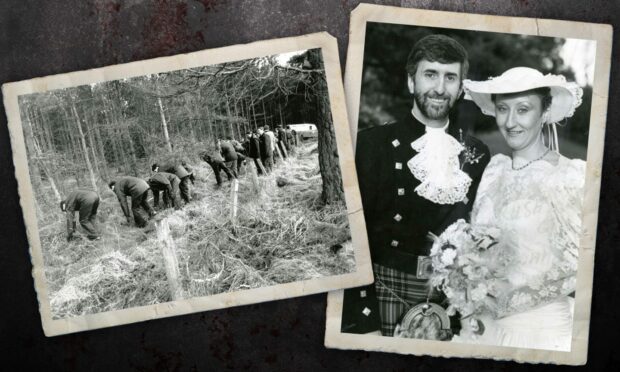
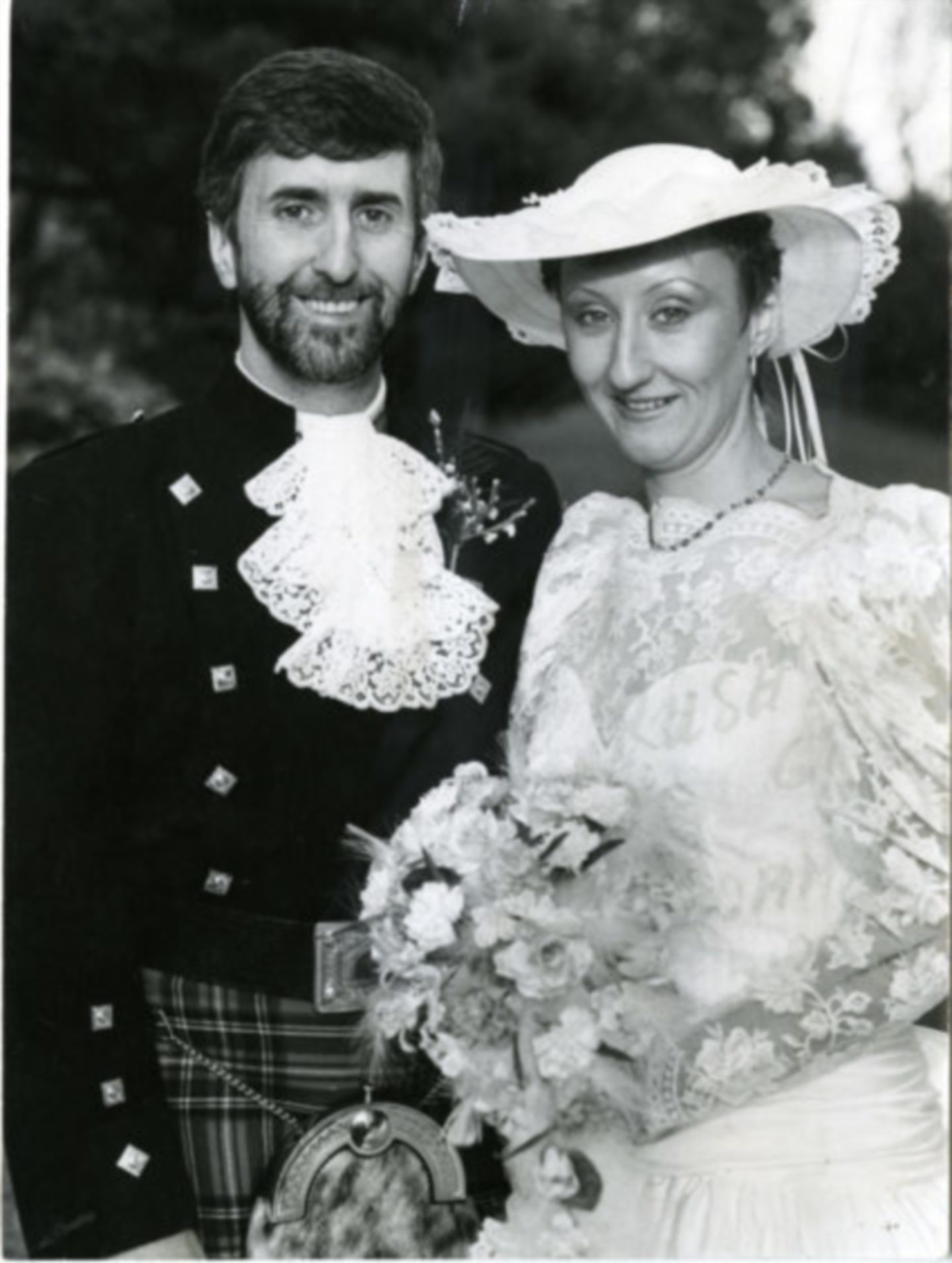
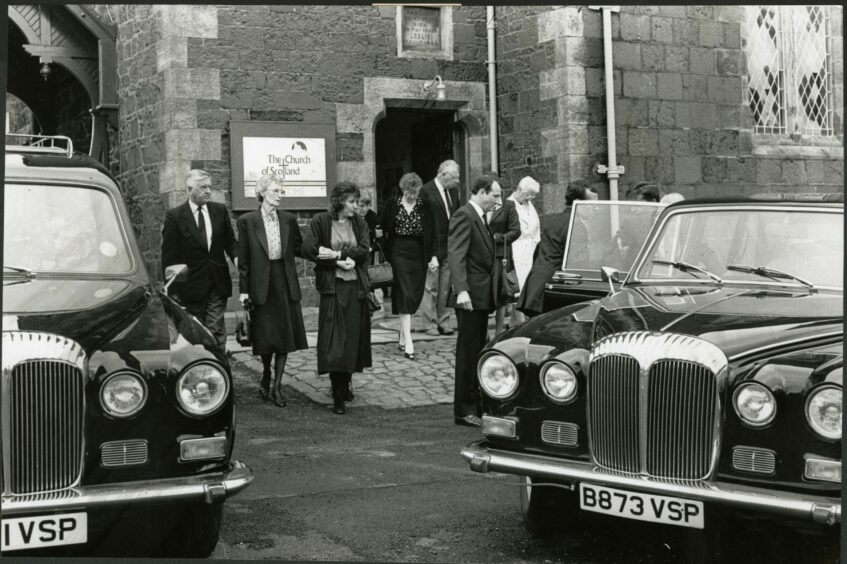
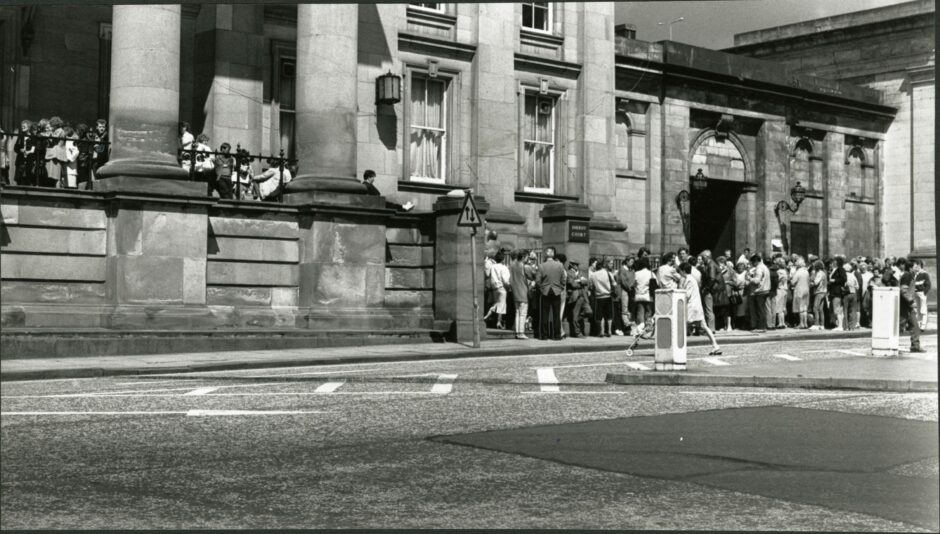
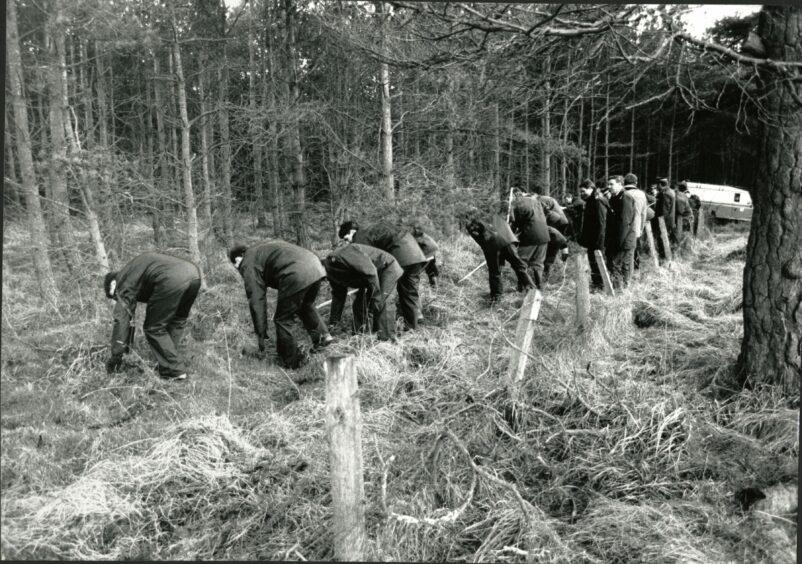
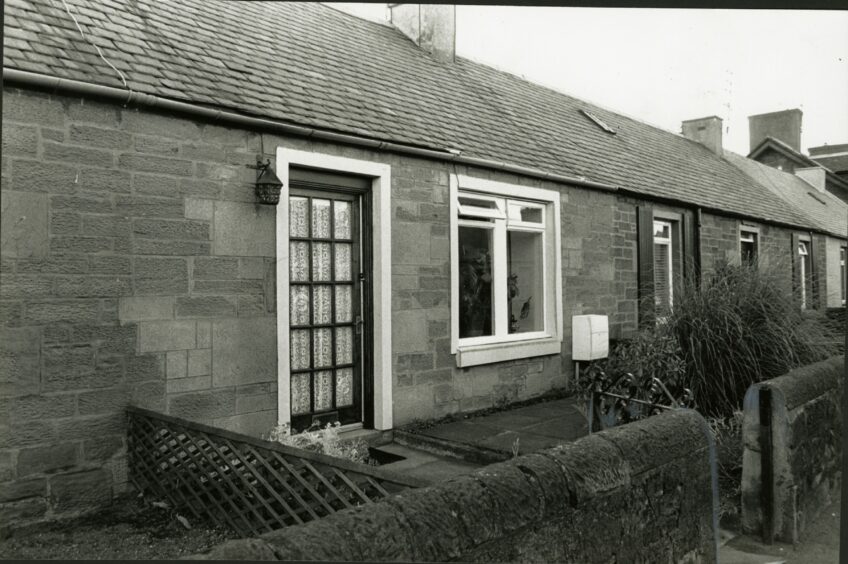
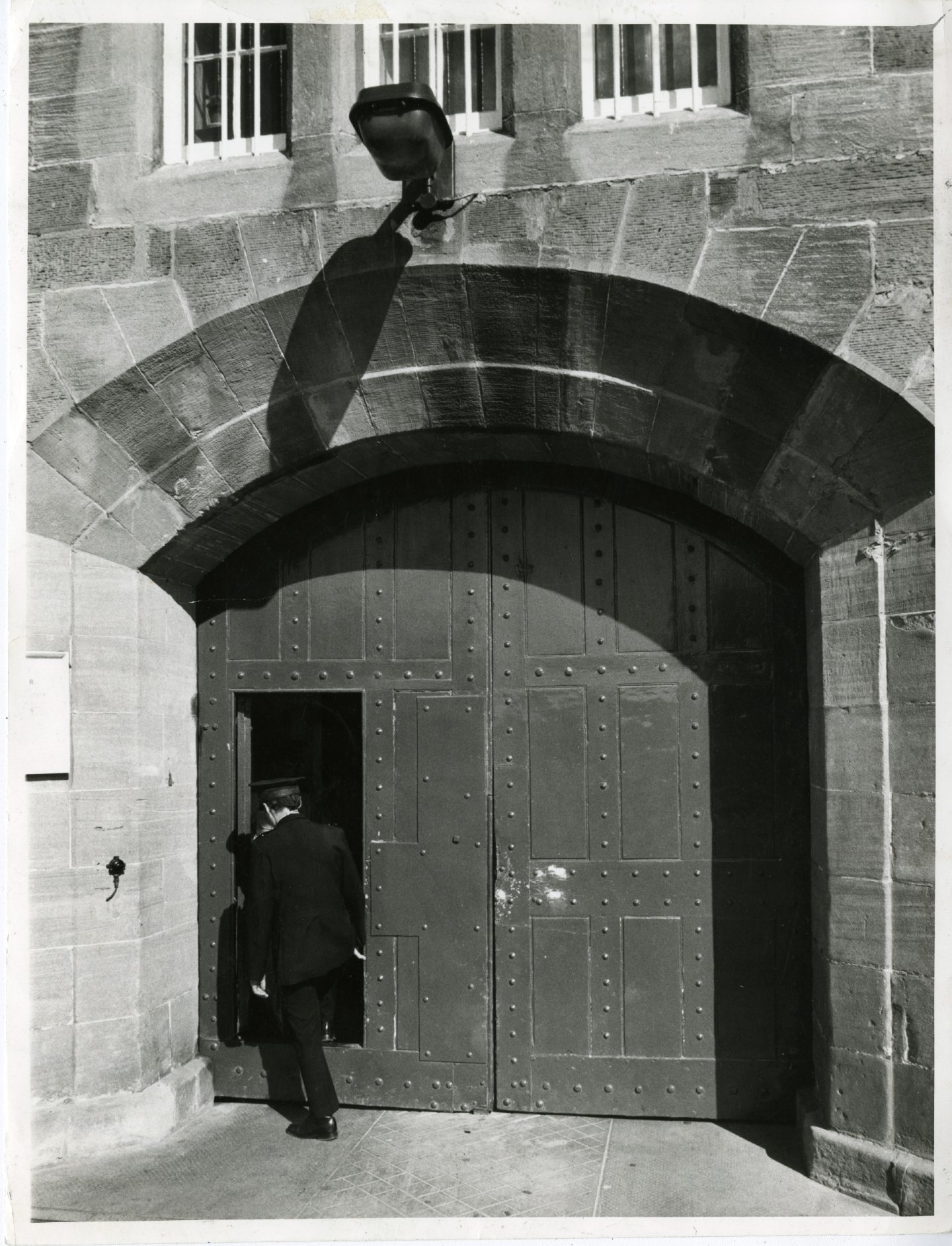


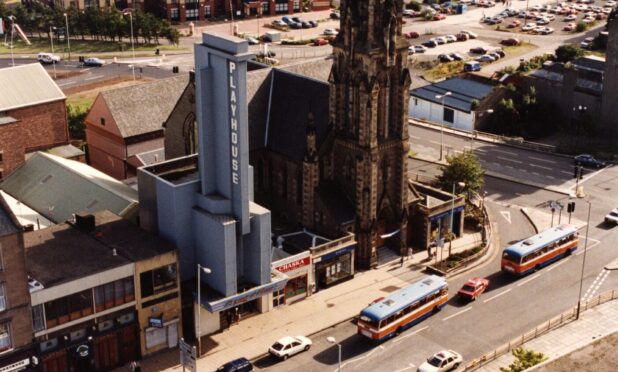
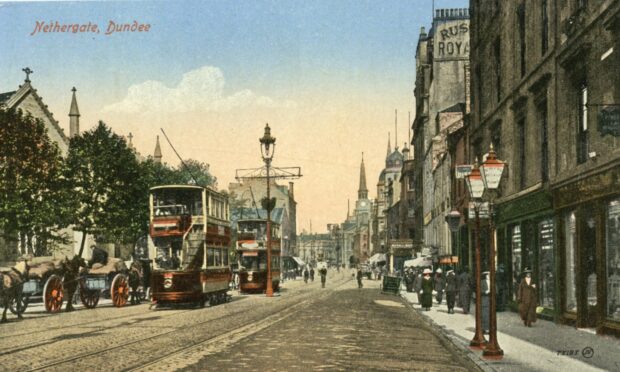






Conversation